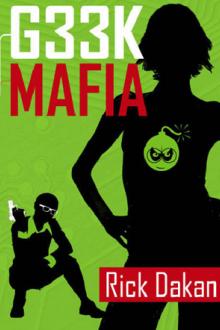Genre Other. Page - 343

ntly proved that the circulation can be carried on, and gangrene does not necessarily result even after such a decided interference with vascular supply.
Operation.--The ligature may be applied in one of two ways, the choice being influenced by the nature of the disease for which it is done.
1. A straight incision (Plate I. fig. 1) in the linea alba, just avoiding the umbilicus by a curve, and dividing the peritoneum, allows the intestines to be pushed aside, and the aorta exposed still covered by the peritoneum, as it lies in front of the lumbar vertebræ. The peritoneum must again be divided very cautiously at the point selected, and the aortic plexus of nerves carefully dissected off, in order that they may not be interfered with by the ligature. The ligature should then be passed round, tied, cut short, and the wound accurately sewed up.
2. Without wounding the peritoneum.
A curved incision (Plate I. fig. 2), with its convexity backwards, from the projecting end o

closely resemble that of a refined product of a coarse idea, and the only method of deciding between degeneration and evolution would be the examination, if possible, of intermediate and remote ancestors. The evidence brought forward by believers in the Wisdom is of this kind. They allege: that the Founders of religions, judged by the records of their teachings, were far above the level of average humanity; that the Scriptures of religions contain moral precepts, sublime ideals, poetical aspirations, profound philosophical statements, which are not even approached in beauty and elevation by later writings in the same religions--that is, that the old is higher than the new, instead of the new being higher than the old; that no case can be shown of the refining and improving process alleged to be the source of current religions, whereas many cases of degeneracy from pure teachings can be adduced; that even among savages, if their religions be carefully studied, many traces of lofty ideas can be found, ideas whi

frosted glass so the reader can peer intothat hazy world. `Underground' belongs on the Net, in their ephemerallandscape.
The critics have been good to `Underground', for which I am verygrateful. But the best praise came from two of the hackers detailed inthe book. Surprising praise, because while the text is free of thenarrative moralising that plague other works, the selection of materialis often very personal and evokes mixed sympathies. One of the hackers,Anthrax dropped by my office to say `Hi'. Out of the blue, he said witha note of amazement, `When I read those chapters, it was so real, as ifyou had been right there inside my head'. Not long after Par, half aworld away, and with a real tone of bewildered incredulity in his voicemade exactly the same observation. For a writer, it just doesn't get anybetter than that.
By releasing this book for free on the Net, I'm hoping more peoplewill not only enjoy the story of how the international computerunderground rose to power, but also make

doomed.
"Look here!" Ross came to the table, his hand sweeping past Karara, as he used his forefinger for a pointer. "We know that what we want could be easily overlooked, even with the dolphins helping us to check. This whole area's too big. And you know that it is certain that whatever might be down there would be hidden with sea growths. Suppose ten of us start out in a semi-circle from about here and go as far as this point, heading inland. Video-cameras here and here ... comb the whole sector inch by inch if we have to. After all, we have plenty of time and manpower."
Karara laughed softly. "Manpower--always manpower, Ross? But there is woman-power, too. And we have perhaps even sharper sight. But this is a good idea, Gordon. Let me see--" she began to tell off names on her fingers, "PaKeeKee, Vaeoha, Hori, Liliha, Taema, Ui, Hono'ura--they are the best in the water. Me ... you, Gordon, Ross. That makes ten with keen eyes to look, and always there are Tino-rau and Taua. We will take suppli

youth shrunk into tasteless sycophancy, or into silent hatred of the pale world about them and mocking distrust of everything white; or wasted itself in a bitter cry, Why did God make me an outcast and a stranger in mine own house? The shades of the prison-house closed round about us all: walls strait and stubborn to the whitest, but relentlessly narrow, tall, and unscalable to sons of night who must plod darkly on in resignation, or beat unavailing palms against the stone, or steadily, half hopelessly, watch the streak of blue above.
After the Egyptian and Indian, the Greek and Roman, the Teuton and Mongolian, the Negro is a sort of seventh son, born with a veil, and gifted with second-sight in this American world, --a world which yields him no true self-consciousness, but only lets him see himself through the revelation of the other world. It is a peculiar sensation, this double-consciousness, this sense of always looking at one's self through the eyes of others, of measuring one's soul by the tape o

on them. Could I be one of their flattering panders, I would hang on their ears like a horseleech, till I were full, and then drop off. I pray, leave me. Who would rely upon these miserable dependencies, in expectation to be advanc'd to-morrow? What creature ever fed worse than hoping Tantalus? Nor ever died any man more fearfully than he that hoped for a pardon. There are rewards for hawks and dogs when they have done us service; but for a soldier that hazards his limbs in a battle, nothing but a kind of geometry is his last supportation.
DELIO. Geometry?
BOSOLA. Ay, to hang in a fair pair of slings, take his latter swing in the world upon an honourable pair of crutches, from hospital to hospital. Fare ye well, sir: and yet do not you scorn us; for places in the court are but like beds in the hospital, where this man's head lies at that man's foot, and so lower and lower. [Exit.]
DELIO. I knew this fellow seven years in the galleys For a notorious murder; and 'twas thought The cardinal

as in it nothing that is morally obligatory. Is not that the idea that you intended to convey?" he asked the lady.
The lady, with a nod of her head, expressed her approval of this translation of her thoughts.
"Then," resumed the lawyer, continuing his remarks.
But the nervous gentleman, evidently scarcely able to contain himself, without allowing the lawyer to finish, asked:
"Yes, sir. But what are we to understand by this love that alone consecrates marriage?"
"Everybody knows what love is," said the lady.
"But I don't know, and I should like to know how you define it."
"How? It is very simple," said the lady.
And she seemed thoughtful, and then said:
"Love . . . love . . . is a preference for one man or one woman to the exclusion of all others. . . ."
"A preference for how long? . . . For a month, two days, or half an hour?" said the nervous gentleman, with special irritation.
"No, permit me, you evidently are not talking of the sa

The old Rebel cursed. "Gehenna of a big crop; we're up to our necks in melons. This time next year we'll be washing our feet in brandy."
"Hold onto it and age it; you ought to see what they charge for a drink of Poictesme brandy on Terra."
"This isn't Terra, and we aren't selling it by the drink," Colonel Zareff said. "We're selling it at Storisende Spaceport, for what the freighter captains pay us. You've been away too long, Conn. You've forgotten what it's like to live in a poor-house."
The cargo was coming off, now. Cask staves, and more cask staves. Zareff swore bitterly at the sight, and then they started toward the wide doors of the shipping floor, inside the Airlines Building. Outgoing cargo was beginning to come out; casks of brandy, of course, and a lot of boxes and crates, painted light blue and bearing the yellow trefoil of the Third Fleet-Army Force and the eight-pointed red star of Ordnance. Cases of rifles; square boxes of ammunition; crated auto-cannon. Conn turned to hi

r sandwiches on white bread she said, "So, tell me Paul, why are you getting fired tomorrow?"
"I'm not really entirely sure," he said, although this was a stalling tactic. He knew pretty well why he was getting fired; he just didn't quite know how to put it into words. It'd only been a couple of hours since his high school friend and CEO had told him what was happening. "I mean, they gave me reasons, but they're not really reasons. They're not things I did wrong."
"What does that mean? They didn't like your looks?"
"Yeah, basically," said Paul. "More to the point, they didn't like the look of how I was doing things. What I mean is, I'm not a tech guy right? I'm an artist and a writer. I'm used to working at home and scribbling away and meeting my deadlines. So when I helped start this company, I figured it would be mostly the same. I figured I'd sit in my office and do my work and hit my deadlines and go to my meetings and all that."
"But you didn't do that?" asked Chloe as she pla
